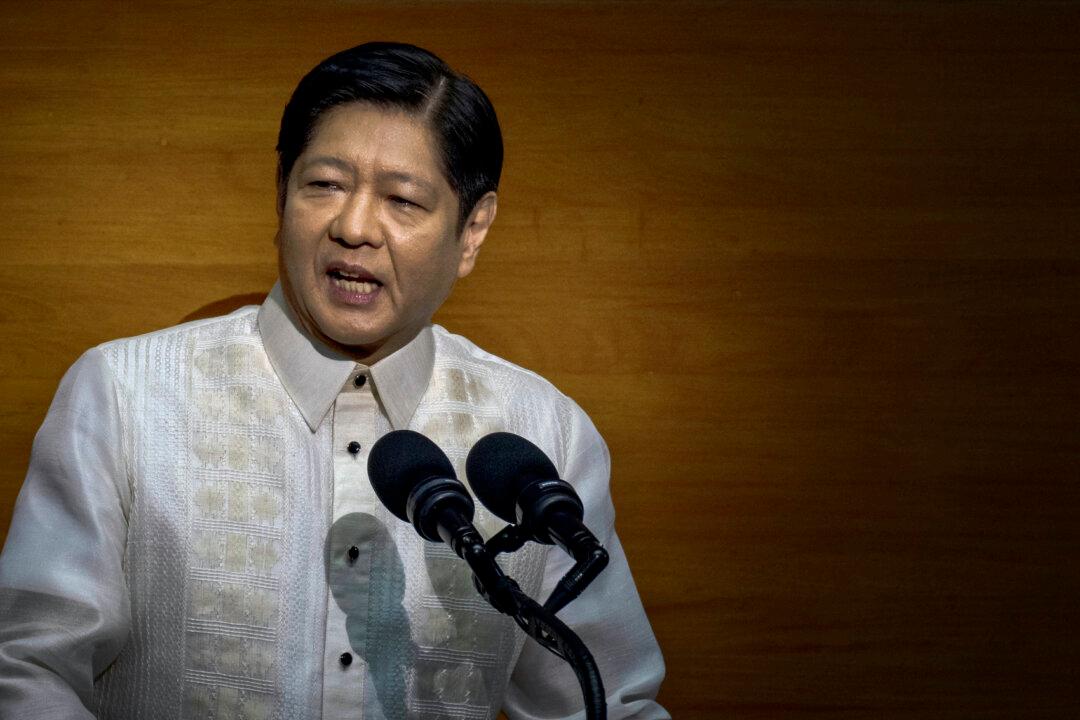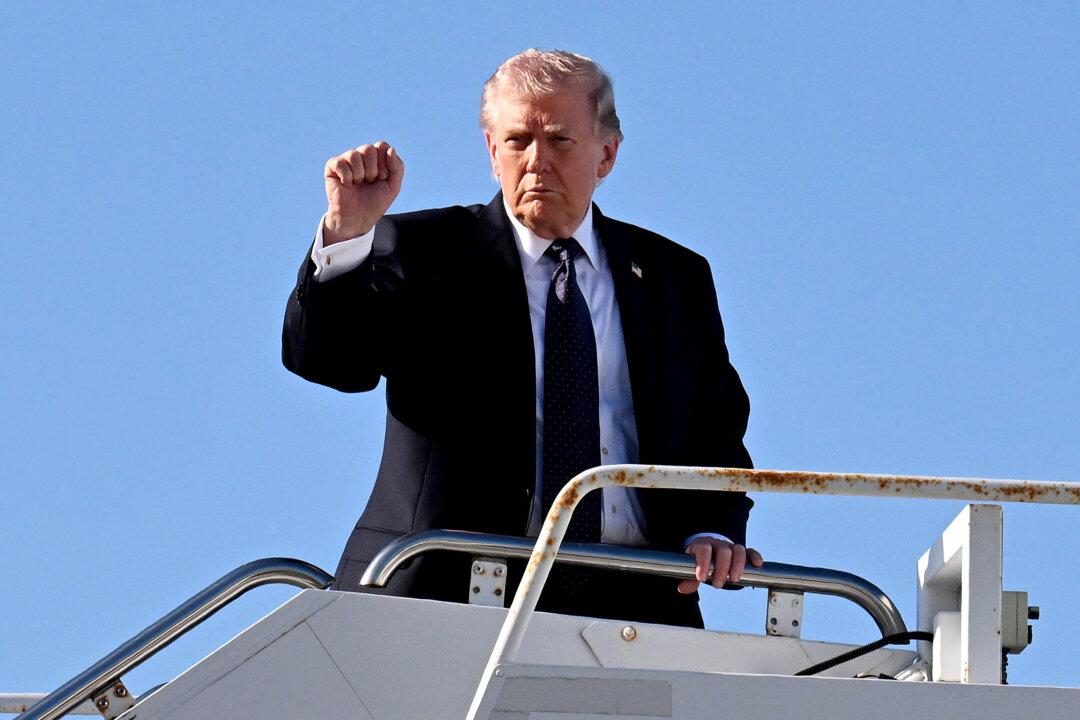Philippine President Ferdinand Marcos Jr. delivered his second State of the Nation Address on Monday, vowing to defend his country’s sovereignty in the increasingly tense South China Sea.
Mr. Marcos, who came into power last year, pledged to uphold the Philippines’ sovereign rights and assured Filipinos that his administration would not let the country “loses any of its territory.”





